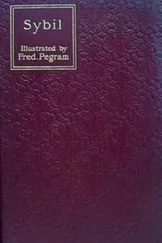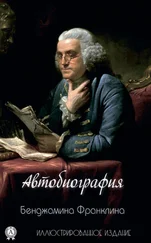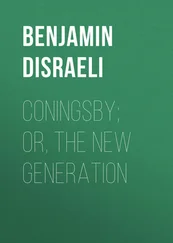Бенджамин Дизраэли - Coningsby
Здесь есть возможность читать онлайн «Бенджамин Дизраэли - Coningsby» весь текст электронной книги совершенно бесплатно (целиком полную версию без сокращений). В некоторых случаях можно слушать аудио, скачать через торрент в формате fb2 и присутствует краткое содержание. Год выпуска: 2014, Издательство: epubBooks Classics, Жанр: Классическая проза, на английском языке. Описание произведения, (предисловие) а так же отзывы посетителей доступны на портале библиотеки ЛибКат.
- Название:Coningsby
- Автор:
- Издательство:epubBooks Classics
- Жанр:
- Год:2014
- ISBN:нет данных
- Рейтинг книги:4 / 5. Голосов: 1
-
Избранное:Добавить в избранное
- Отзывы:
-
Ваша оценка:
- 80
- 1
- 2
- 3
- 4
- 5
Coningsby: краткое содержание, описание и аннотация
Предлагаем к чтению аннотацию, описание, краткое содержание или предисловие (зависит от того, что написал сам автор книги «Coningsby»). Если вы не нашли необходимую информацию о книге — напишите в комментариях, мы постараемся отыскать её.
Coningsby — читать онлайн бесплатно полную книгу (весь текст) целиком
Ниже представлен текст книги, разбитый по страницам. Система сохранения места последней прочитанной страницы, позволяет с удобством читать онлайн бесплатно книгу «Coningsby», без необходимости каждый раз заново искать на чём Вы остановились. Поставьте закладку, и сможете в любой момент перейти на страницу, на которой закончили чтение.
Интервал:
Закладка:
Had Mr. Secretary Canning remained leader of the House of Commons under the Duke of Wellington, all that he would have gained by the death of Lord Liverpool was a master. Had the Duke of Wellington become Secretary of State under Mr. Canning he would have materially advanced his political position, not only by holding the seals of a high department in which he was calculated to excel, but by becoming leader of the House of Lords. But his Grace was induced by certain court intriguers to believe that the King would send for him, and he was also aware that Mr. Peel would no longer serve under any ministry in the House of Commons. Under any circumstances it would have been impossible to keep the Liverpool Cabinet together. The struggle, therefore, between the Duke of Wellington and 'my dear Mr. Canning' was internecine, and ended somewhat unexpectedly.
And here we must stop to do justice to our friend Mr. Rigby, whose conduct on this occasion was distinguished by a bustling dexterity which was quite charming. He had, as we have before intimated, on the credit of some clever lampoons written during the Queen's trial, which were, in fact, the effusions of Lucian Gay, wriggled himself into a sort of occasional unworthy favour at the palace, where he was half butt and half buffoon. Here, during the interregnum occasioned by the death, or rather inevitable retirement, of Lord Liverpool, Mr. Rigby contrived to scrape up a conviction that the Duke was the winning horse, and in consequence there appeared a series of leading articles in a notorious evening newspaper, in which it was, as Tadpole and Taper declared, most 'slashingly' shown, that the son of an actress could never be tolerated as a Prime Minister of England. Not content with this, and never doubting for a moment the authentic basis of his persuasion, Mr. Rigby poured forth his coarse volubility on the subject at several of the new clubs which he was getting up in order to revenge himself for having been black–balled at White's.
What with arrangements about Lord Monmouth's boroughs, and the lucky bottling of some claret which the Duke had imported on Mr. Rigby's recommendation, this distinguished gentleman contrived to pay almost hourly visits at Apsley House, and so bullied Tadpole and Taper that they scarcely dared address him. About four–and–twenty hours before the result, and when it was generally supposed that the Duke was in, Mr. Rigby, who had gone down to Windsor to ask his Majesty the date of some obscure historical incident, which Rigby, of course, very well knew, found that audiences were impossible, that Majesty was agitated, and learned, from an humble but secure authority, that in spite of all his slashing articles, and Lucian Gay's parodies of the Irish melodies, Canning was to be Prime Minister.
This would seem something of a predicament! To common minds; there are no such things as scrapes for gentlemen with Mr. Rigby's talents for action. He had indeed, in the world, the credit of being an adept in machinations, and was supposed ever to be involved in profound and complicated contrivances. This was quite a mistake. There was nothing profound about Mr. Rigby; and his intellect was totally incapable of devising or sustaining an intricate or continuous scheme. He was, in short, a man who neither felt nor thought; but who possessed, in a very remarkable degree, a restless instinct for adroit baseness. On the present occasion he got into his carriage, and drove at the utmost speed from Windsor to the Foreign Office. The Secretary of State was engaged when he arrived; but Mr. Rigby would listen to no difficulties. He rushed upstairs, flung open the door, and with agitated countenance, and eyes suffused with tears, threw himself into the arms of the astonished Mr. Canning.
'All is right,' exclaimed the devoted Rigby, in broken tones; 'I have convinced the King that the First Minister must be in the House of Commons. No one knows it but myself; but it is certain.'
We have seen that at an early period of his career, Mr. Peel withdrew from official life. His course had been one of unbroken prosperity; the hero of the University had become the favourite of the House of Commons. His retreat, therefore, was not prompted by chagrin. Nor need it have been suggested by a calculating ambition, for the ordinary course of events was fast bearing to him all to which man could aspire. One might rather suppose, that he had already gained sufficient experience, perhaps in his Irish Secretaryship, to make him pause in that career of superficial success which education and custom had hitherto chalked out for him, rather than the creative energies of his own mind. A thoughtful intellect may have already detected elements in our social system which required a finer observation, and a more unbroken study, than the gyves and trammels of office would permit. He may have discovered that the representation of the University, looked upon in those days as the blue ribbon of the House of Commons, was a sufficient fetter without unnecessarily adding to its restraint. He may have wished to reserve himself for a happier occasion, and a more progressive period. He may have felt the strong necessity of arresting himself in his rapid career of felicitous routine, to survey his position in calmness, and to comprehend the stirring age that was approaching.
For that, he could not but be conscious that the education which he had consummated, however ornate and refined, was not sufficient. That age of economical statesmanship which Lord Shelburne had predicted in 1787, when he demolished, in the House of Lords, Bishop Watson and the Balance of Trade, which Mr. Pitt had comprehended; and for which he was preparing the nation when the French Revolution diverted the public mind into a stronger and more turbulent current, was again impending, while the intervening history of the country had been prolific in events which had aggravated the necessity of investigating the sources of the wealth of nations. The time had arrived when parliamentary preeminence could no longer be achieved or maintained by gorgeous abstractions borrowed from Burke, or shallow systems purloined from De Lolme, adorned with Horatian points, or varied with Virgilian passages. It was to be an age of abstruse disquisition, that required a compact and sinewy intellect, nurtured in a class of learning not yet honoured in colleges, and which might arrive at conclusions conflicting with predominant prejudices.
Adopting this view of the position of Mr. Peel, strengthened as it is by his early withdrawal for a while from the direction of public affairs, it may not only be a charitable but a true estimate of the motives which influenced him in his conduct towards Mr. Canning, to conclude that he was not guided in that transaction by the disingenuous rivalry usually imputed to him. His statement in Parliament of the determining circumstances of his conduct, coupled with his subsequent and almost immediate policy, may perhaps always leave this a painful and ambiguous passage in his career; but in passing judgment on public men, it behoves us ever to take large and extended views of their conduct; and previous incidents will often satisfactorily explain subsequent events, which, without their illustrating aid, are involved in misapprehension or mystery.
It would seem, therefore, that Sir Robert Peel, from an early period, meditated his emancipation from the political confederacy in which he was implicated, and that he has been continually baffled in this project. He broke loose from Lord Liverpool; he retired from Mr. Canning. Forced again into becoming the subordinate leader of the weakest government in parliamentary annals, he believed he had at length achieved his emancipation, when he declared to his late colleagues, after the overthrow of 1830, that he would never again accept a secondary position in office. But the Duke of Wellington was too old a tactician to lose so valuable an ally. So his Grace declared after the Reform Bill was passed, as its inevitable result, that thenceforth the Prime Minister must be a member of the House of Commons; and this aphorism, cited as usual by the Duke's parasites as demonstration of his supreme sagacity, was a graceful mode of resigning the preeminence which had been productive of such great party disasters. It is remarkable that the party who devised and passed the Reform Bill, and who, in consequence, governed the nation for ten years, never once had their Prime Minister in the House of Commons: but that does not signify; the Duke's maxim is still quoted as an oracle almost equal in prescience to his famous query, 'How is the King's government to be carried on?' a question to which his Grace by this time has contrived to give a tolerably practical answer.
Читать дальшеИнтервал:
Закладка:
Похожие книги на «Coningsby»
Представляем Вашему вниманию похожие книги на «Coningsby» списком для выбора. Мы отобрали схожую по названию и смыслу литературу в надежде предоставить читателям больше вариантов отыскать новые, интересные, ещё непрочитанные произведения.
Обсуждение, отзывы о книге «Coningsby» и просто собственные мнения читателей. Оставьте ваши комментарии, напишите, что Вы думаете о произведении, его смысле или главных героях. Укажите что конкретно понравилось, а что нет, и почему Вы так считаете.
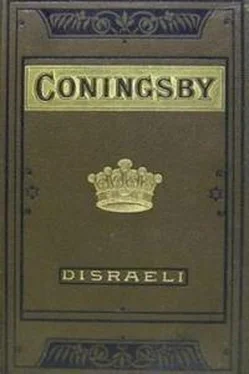
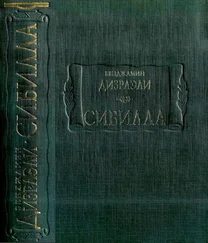
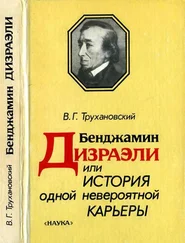
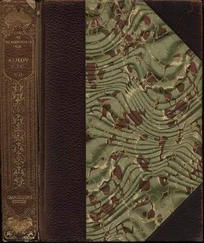

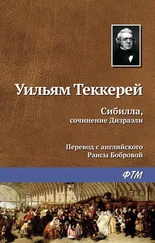
![Мелани Бенджамин - Госпожа отеля «Ритц» [litres]](/books/384861/melani-bendzhamin-gospozha-otelya-ritc-litres-thumb.webp)


